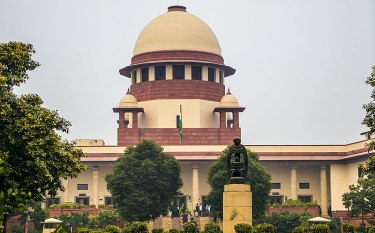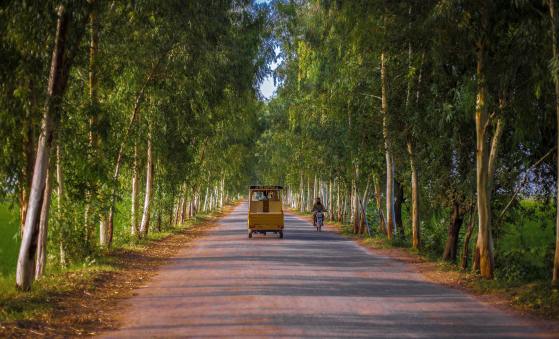
The Jaipur Catholic Welfare Society has moved the Supreme Court challenging the constitutional validity of the Rajasthan Prohibition of Unlawful Religious Conversion Act, 2025. A bench comprising Justice Vikram Nath and Justice Sandeep Mehta issued notice on Monday, November 17, directing the state to respond within four weeks to the petition filed through advocate Amit Pai.
Senior advocate Dr Rajeev Dhavan appeared for the petitioner. The court has clubbed this matter with similar cases already before it.
This is the third petition against the Rajasthan law. On November 3, the Supreme Court had agreed to hear two other petitions challenging the Act, issuing notice to the state government. The court is also separately examining a batch of petitions against anti-conversion laws in several other states, including Uttar Pradesh, Madhya Pradesh, Himachal Pradesh, Uttarakhand, Chhattisgarh, Gujarat, Haryana, Jharkhand and Karnataka.
The petitioner has challenged the law on multiple grounds, asserting that it violates Articles 14, 19(1)(a), 21, 25 and 300A of the Constitution. The petition states that “the structure of the Rajasthan Act is only to create fear in the minds of people and dissuade people from conversions. Further, it is only a tool for harassment of the minority communities and create a chilling effect”.
The law, which came into effect in October this year, prohibits religious conversion achieved through various means listed in Section 3, including misrepresentation, misinformation, force, undue influence, coercion, allurement, online solicitation, marriage or fraudulent means.
The petition contends that these terms have been defined so broadly that they blur the distinction between voluntary and forced conversions. According to the petitioner, this wide scope threatens to criminalise legitimate religious propagation guaranteed under Article 25, creating a deterrent effect on the exercise of religious freedom.
One significant challenge relates to how “conversion” has been defined in the Act. The law excludes returning to one’s “ancestral religion” from its ambit. The petitioner argues this creates an unconstitutional distinction based on the faith of one’s forefathers. The petition also contests the provision that treats inter-faith marriage as conversion through a legal fiction in the Explanation to Section 3(1).
The penal provisions under the Act prescribe mandatory minimum sentences ranging from seven years to life imprisonment, with fines from Rs 5 lakh to Rs 25 lakh. Converting vulnerable groups such as women, persons with disabilities, or those belonging to Scheduled Castes or Scheduled Tribes attracts harsher punishment of 10 to 20 years imprisonment and a fine of Rs 10 lakh.
Mass conversion, defined as involving two or more persons, carries the severest penalty of a minimum 20 years that may extend to life imprisonment, along with a fine of Rs 25 lakh. The petition argues these punishments are disproportionate and create arbitrary classifications that violate Article 14.
The law mandates that anyone intending to convert and religious priests conducting conversion ceremonies must inform the District Magistrate 90 days in advance. A public notice must be displayed at the Collector’s office, allowing objections to be filed within two months. The petition argues that empowering the District Magistrate to entertain objections from any person or organisation violates privacy and enables harassment.
Even failure to notify the Collector about a conversion attracts seven to 10 years imprisonment and a fine of up to Rs 3 lakh. Repeat offenders face life imprisonment.
The petition also challenges provisions permitting confiscation and demolition of property allegedly used for unlawful conversion. It argues these powers lack a reasonable connection to preventing forced conversions and violate Article 300A by allowing property deprivation without adequate safeguards. The demolition provision permits action within 72 hours of a show cause notice, which the petitioner contends contradicts Supreme Court directions on demolition of structures.
The petitioner has questioned the state’s legislative competence to enact this law under Entry 1 (Public Order) of List II of the Seventh Schedule. The petition submits that Rajasthan has not demonstrated through data that religious conversions disturb public order in the state.
During the hearing, Dhavan told the bench, “We have raised issues of legislative competence as well as excessiveness in terms of constitutional limitations.” When the bench observed that similar petitions were pending, Dhavan responded, “We have raised an entirely different question.”
The petition seeks a declaration that the Rajasthan Prohibition of Unlawful Religious Conversion Act, 2025 is unconstitutional and void.




